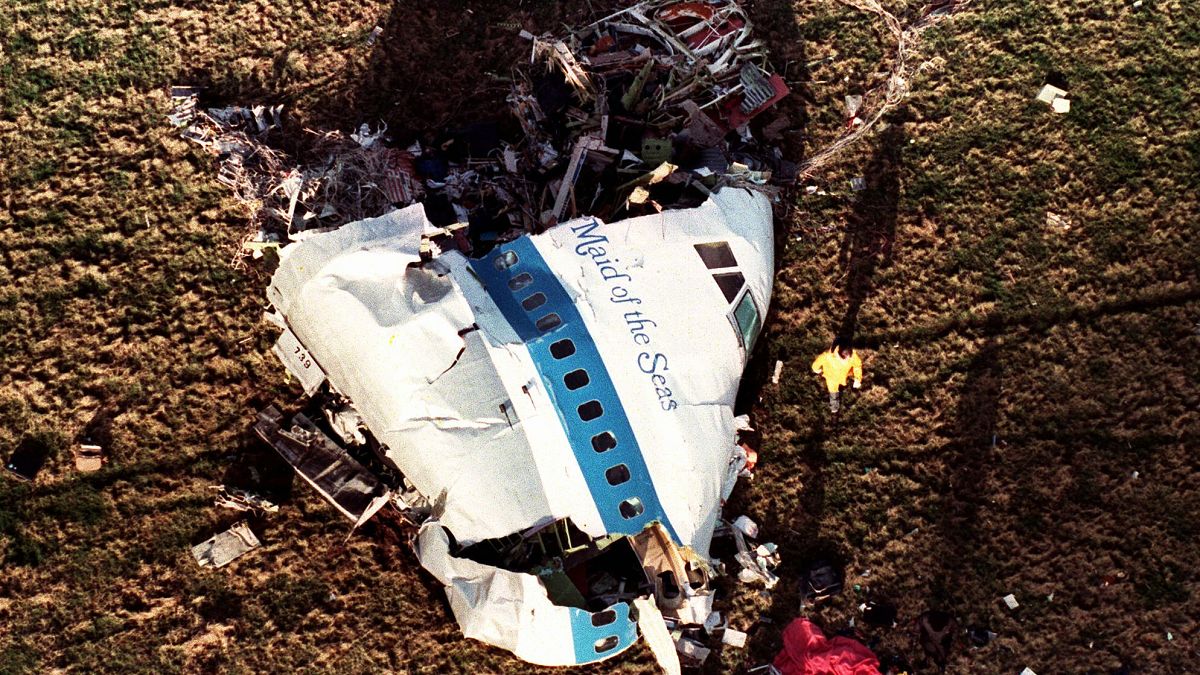The Justice Department revealed charges accusing a Libyan bomb expert in the 1988 explosion of Pan Am Flight 103 over Lockerbie, Scotland, an attack that killed 259 people in the air and an additional 11 on the ground.
The US Justice Department brought charges against a Libyan man suspected of assembling the bomb that resulted in the 1988 explosion of Pan Am Flight 103 over Lockerbie, Scotland.
The attack killed 259 people in the air and an additional 11 on the ground.
In a statement the Justice Department said former Libyan intelligence operative, Abu Agela Mas’ud Kheir Al-Marimi, aka, “Hasan Abu Ojalya Ibrahim”, was being charged for his role in the bombing.
"These charges are the product of decades of hard work by investigators and prosecutors who have remained resolute in their dogged pursuit of justice for our citizens, the citizens of the United Kingdom, and the citizens of the other 19 countries that were murdered by terrorists operating on behalf of the former Muamar Qaddafi regime when they attacked Pan Am Flight 103,” said William Barr, Attorney General of the United States.
Acting US Attorney Michael Sherwin for the District of Columbia said the charges show that "these charges remind the public of the horrific effect that acts of terrorism continue to have on victims and their families", and that the justice is pursued even decades after the criminal actions.
The charges were announced on the 32nd anniversary of the December 21, 1988 bombing.
Pan Am Flight 103 exploded into pieces over Lockerbie, in Scotland, when a bomb in the cargo area went off 38 minutes into the flight. The plane had taken off from London Heathrow and was en route to JFK Airport in New York.
Citizens from 21 countries were killed. Of the 190 Americans who died, 35 were students from Syracuse University on the way home for holidays after a semester studying abroad.
Forty-three victims were from the United Kingdom, including 11 residents of Lockerbie who died as the falling debris destroyed homes on the ground.
The incident was considered the largest terrorist attack on both the US and the UK before the terror attacks of September 11, 2001.
In 1992, the UN Security Council imposed arms sales and air travel sanctions against Libya to pressure then leader Moammar Gadhafi into surrendering two suspects.
Libyarefused, ultimately turning them over for prosecution before a panel of Scottish judges sitting in a Netherlands court.
One man — former Libyan intelligence official Abdel Baset al-Megrahi — was convicted, and a second suspect acquitted of all charges.
Al-Megrahi was given a life sentence, but Scottish authorities released him on humanitarian grounds in 2009 when he was diagnosed with prostate cancer. He later died in Tripoli.
